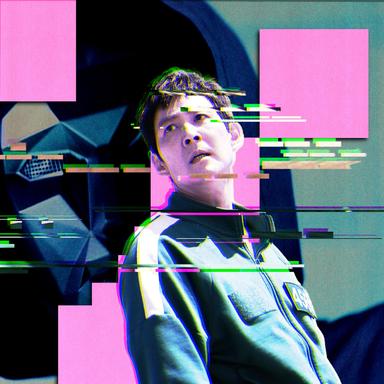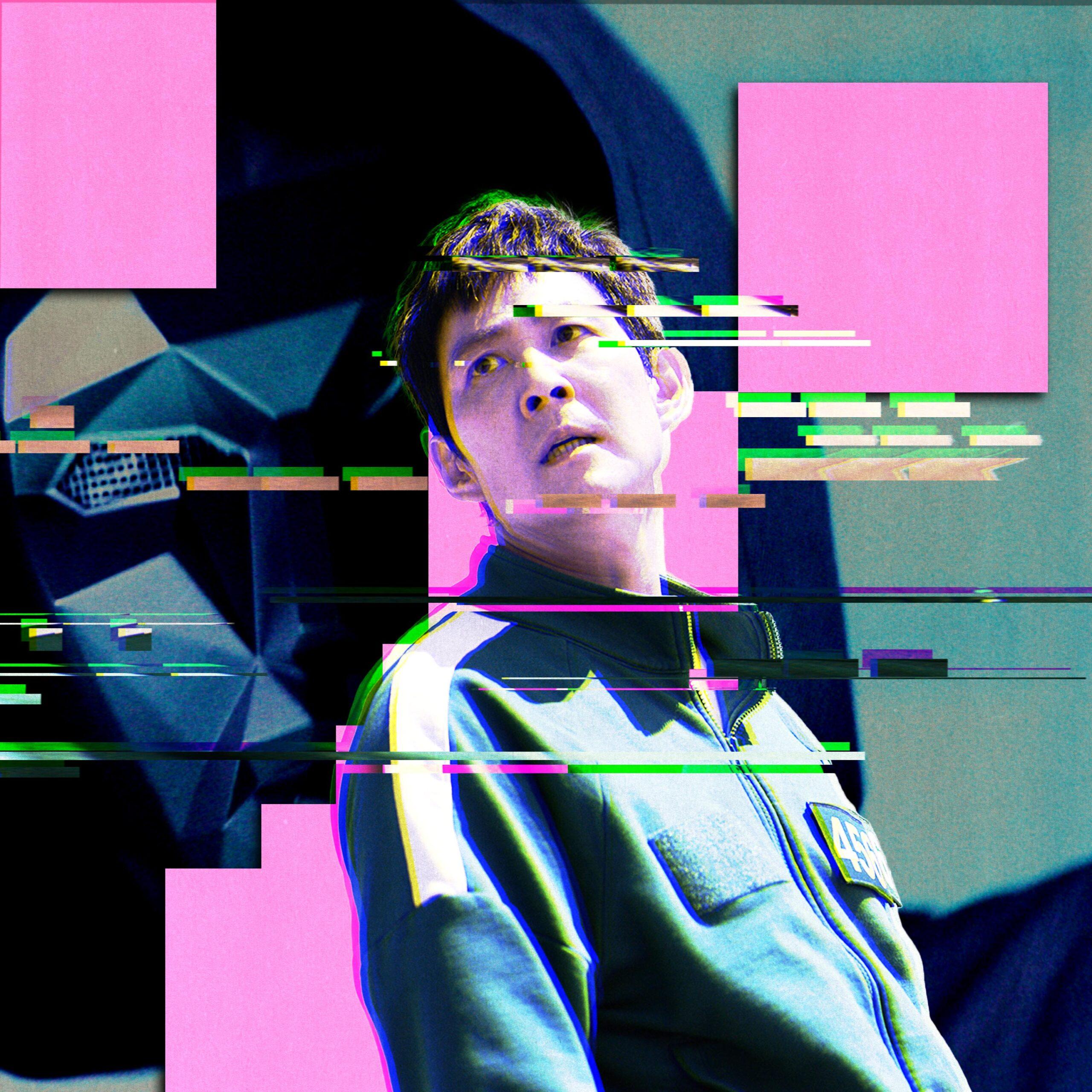Before Squid Game was released on Netflix in September 2021, creator Hwang Dong-hyuk expected his TV series to end after one season.
“Honestly, when I was first working on the first season, I didn't have any plans or thoughts about there ever being further seasons," Hwang recently told Entertainment Weekly. "In Korea, it's not very common for series to have multiple seasons, and also because Season 1 was so incredibly demanding, so I don't think I had the confidence to once again work on further [seasons] where I would be the writer, director, and creator all throughout."
Hwang famously claimed to have lost six teeth due to the stress of filming the first season of Squid Game, with the South Korean filmmaker later correcting that number to eight or nine teeth. Physical toll aside, even Netflix had modest expectations for Squid Game at first, anticipating that the series would mainly perform well in Korea and other regions of Asia. Neither Hwang nor Netflix’s executives foresaw just how much of a success it would become.
Squid Game, which follows Seong Gi-hun (Lee Jung-jae) and 455 other players as they compete in six deadly games for a 45.6-billion-won prize, quickly became a massive hit—and it remains Netflix’s most popular release ever. As of early December, the first season of Squid Game had drawn 330 million viewers and more than 2.8 billion hours viewed. The dystopian thriller went from being a potential one-off season of TV to a global phenomenon, responsible for increasing Netflix’s value by an estimated $900 million on its own. The streaming service capitalized on its success with a reality competition series, video games, merchandise and brand partnerships (from Mattel to Johnnie Walker), and live immersive experiences across the world. Squid Game has become a business empire unto itself. And now, three years after its first season concluded, the series finally returns to continue its story.
On Thursday, Netflix released all seven episodes of Squid Game’s second season. Although Hwang originally designed the show to be a one-season project, its finale left Gi-hun’s journey unfinished. And Season 2 demonstrates just how much of that story was still left to tell. As much as money has been the primary motivation for Netflix (and Hwang) to extend a series that is ironically all about greed and the evils of capitalism, the second season is much more than a simple cash grab. By fleshing out returning characters, introducing more games, and adding new perspectives, Squid Game expands its dark world as it continues to grow into a full-fledged franchise.
The second season picks up right where Season 1 concluded in 2021. Gi-hun could have taken his flight to America to see his daughter and forget all about the Squid Game, but after witnessing the Salesman (Gong Yoo) recruit another desperate man into the next competition while on his way to the airport, his survivor’s guilt outweighed his desire for a fresh start. In the season premiere, Gi-hun leaves Incheon Airport, returns to Seoul, and spends the next two years searching for the Salesman again so that he can get in contact with the Front Man (Lee Byung-hun) and put an end to the games for good. He’s prepared to use all that’s left of his prize money to fund his righteous mission, and as the season progresses, Gi-hun risks his life by reentering the Squid Game to tear it down from within.
It was always going to be a challenge to follow the first season of Squid Game, what with the show no longer possessing the element of surprise that helped make its story such a bingeworthy watch the first time around. After all, Gi-hun already endured six games, met the mysterious figure behind the Front Man’s black mask (albeit while wearing a blindfold), and learned about the origins of the deadly competition from the creator of the Squid Game himself, Oh Il-nam (O Yeong-su). In addition to the unraveling of some of the show’s central mysteries, many of the first season’s standout characters died, including Cho Sang-woo (Park Hae-soo) and Kang Sae-byeok (Jung Ho-yeon), whose lives were ultimately sacrificed for 100 million won and a few days of entertainment for the game’s rich, sadistic benefactors.
Season 2 does more than just thrust Gi-hun back into another player pool of desperate, debt-ridden people so that he can strive for a rare second consecutive Squid Game title. He and Hwang Jun-ho’s (Wi Ha-joon) mutual goals of locating the island where the games are held, finding the Front Man, and shutting down the entire operation create a new dynamic for Squid Game to explore both inside and outside of the competition. While Gi-hun was just one of many unsuspecting contestants in the first season, he returns with the experience and knowledge of how to survive. And Jun-ho, who infiltrated the previous Squid Game in order to track down his missing brother, hasn’t given up on finding In-ho—even after he discovered that his brother was the Front Man, and was shot by him. With Gi-hun and Jun-ho working together this time, Squid Game reframes the stakes of the series, as it becomes less about winning a 45.6-billion-won prize, and more about ending the predatory competition while bringing the people who run it to justice.
Squid Game builds on its first season by exploring Gi-hun’s evolution as a character and putting a greater focus on the Front Man, who follows Oh Il-nam’s lead and becomes a participant in the new round of games, rather than remaining another spectator. (This also means that global star Lee Byung-hun’s role is much more substantial this season, with his character no longer hidden behind a mask.) In Season 1, Gi-hun is a degenerate gambler who lives at home with his mother and shamelessly steals her money to bet on horses. He’s a constant disappointment to his daughter, and yet he still has a natural, if a little naive, kindness in his heart. After witnessing his friends die for the sake of entertainment, only to return home to find that his mom also died while he was away, the Gi-hun of Season 2 has been changed by his traumatic experiences, and he’s armed with a new resolve. He might still be an absentee father, but he’s all but shed his pitiful former self and become an action hero, hellbent on revenge.
“Sometimes [Hwang] would say that’s too much or not enough of ‘Season 1 Gi-hun’ when we shot different scenes,” Lee Jung-jae told The Hollywood Reporter during the production of Season 2 back in 2023. “I think a lot of people are expecting him to be [more hardened or cynical], but that’s exactly what we’ve been deliberating as we film.”
As for In-ho, the Front Man’s true identity was a mystery for much of the first season; his face was revealed in the penultimate episode, right before he shot Jun-ho in the shoulder and sent him flying over the edge of a cliff. But now he’s become a core member of the cast, as he rejoins the Squid Game and demonstrates how he won it years before Gi-hun received that first slap in the face while playing ddakji in the subway. Given that In-ho has entered the games under a different name, it’s hard to tell how much of what he says and how he carries himself is true to his character or merely a part of a persona he’s created to keep a closer eye on Gi-hun. Without spoiling too much, for the sake of those who haven’t finished their binge watches, plenty of In-ho’s story is still left to be told at the end of this season, and his rivalry with Gi-hun has become one of the show’s central interests.
In addition to developing the few returning characters, Squid Game introduces new faces to replace the most popular supporting players from the first season. One of Gi-hun’s betting buddies, Jung-bae (Lee Seo-hwan), is back in a more prominent role after getting lured into the same trap as his friend; there’s a crypto bro and his pregnant ex-girlfriend, who need money after some bad investments; a trans woman who’s a former special forces soldier; a mother-son duo; and a rapper named Thanos (Choi Seung-hyun), who’s inspired by the infamous Marvel villain—the guy even dyed his hair purple and painted his nails to match the colors of the Infinity Stones. For the first time, Squid Game also shows the perspective of one of the guards, a former soldier and North Korean defector, shedding light on how these ruthless, and usually wordless, masked figures get involved in the competition.
With the exception of the returning Red Light, Green Light, the new season brings new games and dimensions to the Squid Game. In Season 1, Red Light, Green Light—the first challenge—was followed by a single opportunity for the surviving players to vote on whether they wanted to continue playing for the prize money or return to the safety of their homes, empty-handed. However, in the new season, there’s a twist to this voting scenario: A mass vote is now held after each round, and even if the majority decides to send everyone home, each player will receive an equal cut of the game earnings collected up to that point. Although this voting process yields diminishing returns in suspense and entertainment value each time it occurs, the division it creates among the players reinforces the key theme that Hwang is exploring in this batch of episodes: the freedom of choice.
On the heels of a contentious U.S. presidential election, and particularly after a stunning sequence of events in South Korea that saw president Yoon Suk Yeol declare martial law in early December before getting impeached by the National Assembly 11 days later, Squid Game offers a well-timed social commentary on the societal disharmony that Hwang recognizes is happening around the world. “I was inspired by the sheer fact that everywhere you turn, people are drawing lines, whether it’s by generation, class, religion, ethnicity, or race,” Hwang told The Hollywood Reporter. “I wanted to tell a story about how the different choices we make create conflicts among us and to open up a conversation about whether there is a way to move toward a direction where we can overcome these divisions.”
One of the most glaring differences in the new season is how its narrative arc is essentially split into two parts, with the latter half saved for the show’s upcoming third and final season. "I originally envisioned Seasons 2 and 3 as a single story," he explained to Entertainment Weekly. "That's how I wrote it. But in the process, it came out to be too many episodes. So I thought it'd be better to divide it into two."
Even if this structural decision was made to serve the story, it also serves Netflix’s strategy of parlaying the first season’s success into a proper franchise that it can continue to explore—and profit from. Season 2 comes to a sudden stop after a dramatic disruption of the Squid Game takes place in an action-packed finale, resulting in a frustrating conclusion that leaves story lines and character arcs unresolved. (There’s even a brief mid-credits stinger, further demonstrating the streamer’s franchise-building sensibilities.) It feels like more of a midseason break than it does a satisfying ending. But since the final two seasons were filmed concurrently, at least fans won’t have to wait nearly as long for the series to return this time; the third season is expected to arrive in 2025.
Although Hwang’s three-season story is nearing its finish, Netflix already has plans in motion to keep the games rolling. David Fincher is reportedly developing an English-language Squid Game series, and based on what we’ve seen through two seasons, there are plenty of potential directions for further spinoffs or prequels to go. As Jun-ho discovers in Season 1 while searching through the Front Man’s records, the Squid Games have been held every year since 1988, and one of the V.I.P.s later comments that “the contest in Korea was the best,” suggesting that there are other forms of this competition held in other countries. Whether Netflix chooses to show international spins on the concept, or focus on one of the previous Korean contests, it certainly seems as if the story of Squid Game is far from over. “There are certain projects that are currently being made where they ask for my opinion a little bit more actively,” Hwang told Variety. “So as far as I know, going forward, there’s going to be even more creative projects that come from the Squid Game universe, some of which I will be more involved in.”
There may be a bit of an eerie dissonance between the show’s violent critique of capitalism and Netflix’s own capitalistic pursuits, but the second season more than justifies the elongation of Hwang’s original story. (As for Jack Link’s Red Light: Green Light Beef Jerky, I’m not so sure.) While it doesn’t quite recapture the shocking heights of its global introduction, Squid Game does just enough in its return to distinguish itself from the first season and not feel overly reliant on the same blueprint. And with a thrilling cliffhanger to conclude the season finale and tee up its final chapter, the series has all but ensured that the excitement and anticipation surrounding Gi-hun’s journey will carry over into the new year.





